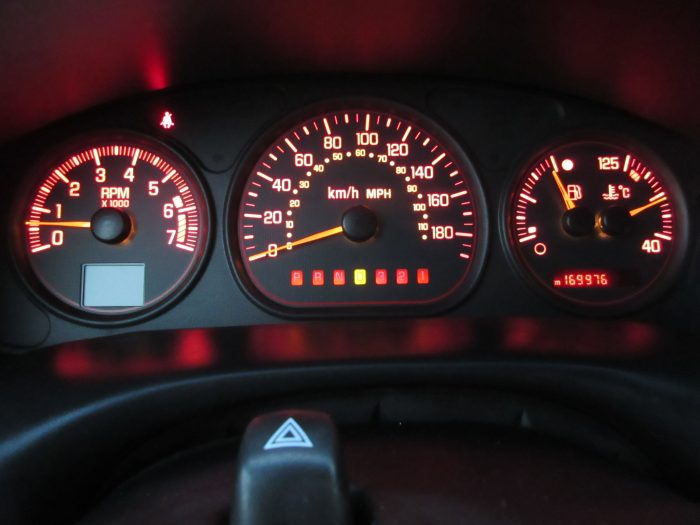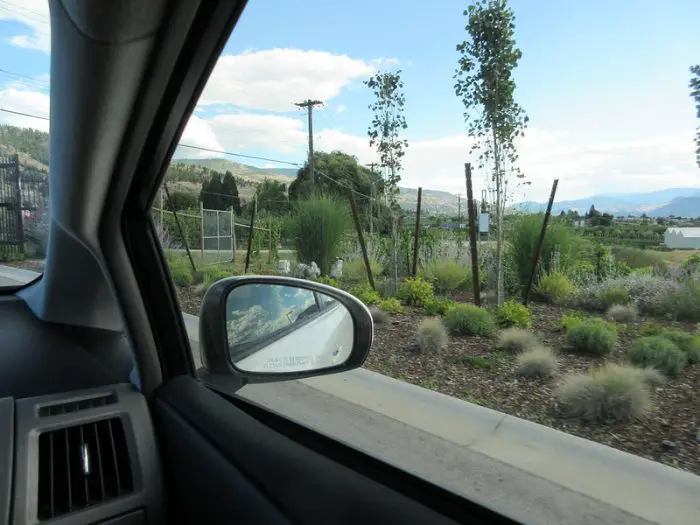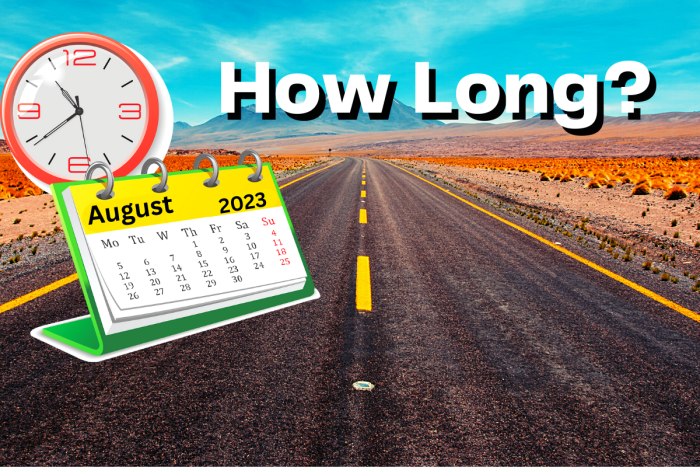How long does it take to learn to drive? It’s a process
It takes most people about 60 hours of practical driving time behind the wheel to learn how to drive if they’ve never driven a car ever before. This is coming from my experience as a driving instructor for about 10 years in beautiful North Vancouver, British Columbia, Canada.
How long does it take to learn to drive? In this article, I’ll get into some more detail and explain why it takes a while to learn this important life skill. For a related article, check out: Driving a Car for the First Time? Practical Tips.

Learning to drive is like building a house
One thing I realized after teaching driving lessons for almost a decade was that learning how to drive is much like building a house (not that I truly and deeply understand how to build a house, but that is beside the point!).
In other words, a solid foundation is imperative. You just can’t skip this step and expect things to work out.
Sometimes I would meet people who weren’t really interested in learning how to drive but merely wanted to pass the road test. They just wanted to get it over with and didn’t really care to learn how to stay safe on the roads. They tried to rush through the process.
It just made drivers more confused than ever. I had to go backward with them and start all over from the beginning.
What I’m recommending is to take your time and really place a lot of importance on getting a solid foundation before getting excited and moving on to more difficult tasks.
What does this solid foundation consist of?
- Blind spots, shoulder checking
- Two-way stops
- Four-way stops
- Right-of-way rules
- Controlling the vehicle smoothly – steering, vehicle controls
Driving is a complex task
When wondering how long it takes to learn to drive, one must understand that driving is a complex task, with many variables. There are many important things to learn, and I’m not just talking about skills. I’m also talking about things such as attitudes.

How hard is learning to drive?
I would say that most learner drivers find it somewhat difficult to learn how to drive. It’s naturally a long process, and the success of a student will rely largely on the skills and abilities of their co-pilot and/or instructor.
This includes knowledge, but also things like how patient the co-pilot is. The good thing is that while learning to drive may seem difficult in the beginning, for most people it does get easier as time goes on. It’s difficult in the beginning as that’s when the nerves are most active on both the student and their co-pilot.
Is one driving lesson per week enough?
For driving lessons, it all depends on your timeframe and your budget. The Graduated Licensing Program forces learners in British Columbia to keep their Learner’s license for at least one year. But that doesn’t stop people from not driving at all for 9 months, and then trying to cram everything into the summer, for example.
So if you have time for one driving lesson per week as well as additional time to practice what you’ve learned, then I don’t see a problem with trying if you are insanely motivated to use this unique approach to learning.
Graduated Licensing Program Success
It’s true that according to research, the safest type of new drivers seemed to result from having learned how to drive gradually, not crammed into a few summer months (although I do understand that life happens, and some folks are just too busy with school or other things during the year to find the time to devote to driving).
I had the most success teaching people how to drive over about one year. With this model, the driving lessons were done about once per month. This left some time in between lessons for the learner to practice their skills until the next lesson.
The most successful learner drivers in my experience spent about 12 hours with a driving instructor – spread over about a year – and about 45 hours on their own with their co-pilot or parent in between the lessons.
Is 25 too late to learn to drive?
Hell no! Do not get discouraged. Both my brother, sister, and best friend got their driver’s licenses when they were about 29 or 30 years old. They all drive perfectly well. Not to mention my grandmother, who got her driver’s license not until she was 50 years old!
It is never too late to follow your dreams or get your driver’s license. When working as a driving instructor, I met many people who did not learn how to drive until they were well into their 20s or 30s.
I often found these types of learners to be more enjoyable to work with in driving lessons compared to the typical 16-year-old. Being 16 years old is just, well, not very old. Some teenagers are quite immature, and some have a lot of hormones going on.
For example, some teens seemed to want to get into a collision just to prove a point that the other driver was wrong. Drivers of all ages need to rise above this immature type of thinking to stay safe on the roads and to make sure to focus on spending time on things that are important in life.
People who are a bit older are typically much more mature, and calmer, and it’s often easier for them to understand driving concepts and easier for them to focus on the task at hand and not get distracted by teenage-type of things.
It’s good to know that if you’re learning how to drive into your 20s, 30s, or beyond, you definitely aren’t alone. There are many people who are learning how to drive later, and it’s perfectly fine. There is definitely no judgment from the driver training industry if you’re learning how to drive later.
What is the hardest part of learning how to drive?
This is just my opinion, but based on my experience, I would say that hands-down the most difficult part of learning how to drive is when you are first starting; learning how to simply do a right or left turn when you are first learning.
This is difficult because you are just learning how to control the vehicle in the beginning. You need to multitask, by learning how to turn the steering wheel, how much to turn it, where to look, how fast to turn the corner, and how to recover the wheel, all while being quite nervous when you’re new. And oh yeah, worrying about other traffic and not knowing the rules of the road.
Things get easier as you go on because after a while you’ll be much better at controlling the vehicle, so even things such as complicated intersection turns and parallel parking are not that bad, since you’ll already have some experience controlling the wheel and experience driving in traffic.
Are two-hour driving lessons better?
You can do different lengths of driving lessons. Personally, I had the best results with driving lessons that were an hour and a half (1.5 hours long).
With two-hour lessons, I found that I always ran the risk of inputting too much information into a learner driver’s brain, which sometimes resulted in the learner becoming tired, making mistakes, or getting overwhelmed. It was hard to “take it easy” sometimes, knowing people were paying to teach them things, and time is money.
But, to each his or her own. You may know what type of learner you are and how much information you can handle at one time.
How to prepare for driving lessons
Certainly, preparing for driving lessons can help you to have a smooth lesson, retain information, and find the experience more enjoyable and less stressful. Here are some things to consider:
- Read the ICBC Learn to Drive Smart Guide or a similar educational resource from your area to prepare you and learn the basic rules of the road
- Get a good night’s sleep so you feel well rested
- Bring your driver’s license and be prepared to show it to your instructor
- Wear solid shoes that will allow you to control the car smoothly – avoid flip-flops, high heels, open-toe shoes, etc.
- Wear comfortable clothing
- Bring your sunglasses if you know it will be sunny
Can you learn how to drive in a week?
I would say no! Most government agencies as well as driving instructors would recommend learners drive for at least 60 hours before attempting the first road test. Technically, there are 168 hours in a week, so I suppose it would be technically possible. But in reality, it’s going to take longer than that to get the proper amount of experience. And people who learn more gradually tend to have more success. Allowing information a change to “sink in” is a real, valuable thing (in my opinion).
Best age to learn how to drive?
I believe the best age for learning how to drive would be the age that is most appropriate for you and your unique circumstances. Some folks simply aren’t ready to learn to drive when they are 16, and this is perfectly okay.
One thing to mention, though, is that it’s typically much easier to learn how to drive when you’re a teen in the sense that people usually have a parent or guardian of some kind that is available to help put in the time to practice driving.
I’ve met a lot of people in their 20s or 30s who told me it’s almost impossible to find someone to practice driving with them because their friends are busy working, or they’ve had children and are simply too busy with life.
So that is one thing to consider. But there may be creative ways to overcome this, such as buying a larger package from a driving school or finding another creative way of meeting somebody who can help fill the role of the co-pilot.



